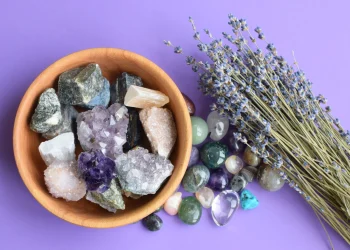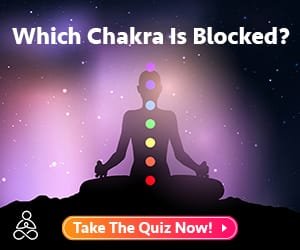I’ll never forget the morning I was talking on the phone with someone and I told them “Oh no, I think I lost my phone.” I was frantically looking all over for it while it was, well, in my hand—yep, classic brain fog moment! After laughing (okay, crying) about it, I became obsessed with untangling why my mind felt like oatmeal and what could actually help. Spoiler: holistic healing, as eclectic as it sounds, made all the difference. Let’s unravel the weird world of brain fog remedies together, one unconventional step at a time.
Holistic Psychiatry: When Science Meets the “Woo-Woo”
Let me set the scene: I’m sitting in the waiting room of a holistic psychiatry clinic, clutching my phone and wondering if I’m about to be sold a magic brew—or worse—a juice cleanse. I was skeptical, to say the least. My brain fog had gotten so thick I’d started to forget my own punchlines. So, I figured, why not try something new? The worst that could happen was I’d leave with a story. (Spoiler: I left with a meditation plan and a tiny bag of lavender. No juice cleanse. Phew.)
Holistic psychiatry is where science and “woo-woo” shake hands. It’s not about ditching your doctor or tossing your meds. Instead, it’s about blending the best of both worlds: conventional brain science and alternative wisdom. Think of it as a toolkit that includes everything from medication and talk therapy to yoga, nutrition tweaks, and—yes—sometimes even energy healing. The goal? Whole-person care. That means treating your mind, body, and spirit, not just your symptoms.
I’ll admit, my first reaction to the phrase “holistic healing” was a mix of curiosity and eye-rolling. But as I dug deeper, I realized this approach isn’t just about incense and chanting. Research shows that mindfulness practices, meditation, and stress management are legitimate tools for clearing brain fog and boosting mental clarity. In fact, studies indicate that mindfulness and stress management can directly impact how our brains function, helping us feel sharper and more present.
Here’s what surprised me most: holistic psychiatry doesn’t mean you have to choose between science and spirituality. Instead, it’s about using both. For example, my practitioner talked about nutrition—how certain foods can either cloud or clear your mind. We discussed meditation for mental clarity, and she even mentioned herbs like Ginkgo biloba, which some people use to support cognitive function. I was given a simple meditation technique (no chanting required) and a stress management plan that felt doable, not overwhelming.
Let’s be honest—sometimes, the holistic world can feel a little out there. Crystals for brain fog? Flower essences for emotional balance? I get it. The skepticism is real. But here’s the thing: skepticism is part of the journey. It keeps us grounded. You don’t have to believe in every single practice to benefit from holistic psychiatry. Maybe you’ll find that meditation helps, but crystals don’t. Or maybe lavender oil becomes your secret weapon for stress management. The point is, you get to pick what works for you.
“A holistic approach doesn’t mean rejecting modern medicine. It means amplifying its effects with everything else that works.” – Dr. Lucia Rivera
Holistic psychiatry is about integration. It’s about using mindfulness practices, stress management, nutrition, and even a little “woo-woo” to tackle brain fog from every angle. So, if you’re feeling foggy and nothing else has worked, maybe it’s time to step into the world where science meets the strange—and see what sticks.
Crystals, Herbs & Oils: The Sensory Side Quest
Let’s be honest: when brain fog hits, I’ll try just about anything to clear the haze. My desk is a living testament to this—part science lab, part new age curiosity shop. Crystals for brain fog? Herbal remedies? Essential oils? Yes, yes, and yes. If it promises mental clarity, I’m game. Here’s my not-so-scientific, but very real, journey through the sensory side quest of holistic healing.
Crystal Craze: Amethyst, Fluorite, and the Power of “Maybe”
First up, the crystal experiment. I started with amethyst and fluorite—two stones that, according to the internet (and a few enthusiastic friends), are supposed to help with focus and clear thinking. Did I suddenly become a genius? No. Did my desk look cooler? Absolutely. There’s something oddly comforting about having these little gems nearby when I’m slogging through a foggy afternoon. Maybe it’s the placebo effect, maybe it’s just the sparkle, but I’ll take any edge I can get. Even if the science is thin, the ritual itself feels grounding.
Herbs with Science—and a Story: Ginkgo Biloba Tea
Now, onto something with a little more research behind it: Ginkgo biloba. I started brewing Ginkgo biloba tea before my toughest exams, mostly because I read that herbs like this are known for improving cognitive function and mental clarity. And honestly? I felt sharper, or at least less panicked. Studies indicate that Ginkgo biloba can enhance memory and focus, making it a staple in my arsenal of natural remedies. Plus, the act of making tea is a mini-meditation in itself. Win-win.
Essential Oils for Mental Clarity: The Peppermint Pick-Me-Up
Here’s where things get delightfully aromatic. When the 3pm slump hits hard, I reach for peppermint essential oil. Just a quick inhale and—boom—my brain feels like it’s been splashed with cold water. Research shows that essential oils, especially peppermint and lavender, are popular for stress relief and cognitive benefits. I keep a tiny bottle at my desk for those moments when coffee just isn’t cutting it. It’s a small ritual, but it works wonders for my focus.
Flower Essences: Placebo or Not, I’ll Take “Uplifted”
Flower essences are the wild card in my holistic toolkit. They’re a little mysterious, a little magical, and honestly, I’m not sure if they do anything concrete. But when I’m feeling especially foggy or down, a few drops under the tongue seem to lift my mood. Maybe it’s the ritual, maybe it’s wishful thinking. Either way, I’m not complaining. As Dr. Priya Malhotra puts it:
“When it comes to brain fog, I remind patients that even small rituals—like herbal tea or essential oils—can anchor us back into the present.”
So, whether it’s crystals for brain fog, herbal remedies like Ginkgo biloba, or a whiff of essential oils, my sensory side quest is all about experimenting with what feels good—and what just might work. The evidence may vary, but the experience? That’s 100% real.
Yoga, Breath & Movement: Turning Down the Mental Static
Let’s be honest: when someone first suggested yoga to clear my brain fog, I pictured a room full of serene people folding themselves into pretzels while I struggled to touch my toes. But desperate times call for weird measures, so I picked a few positions that I could do and gave it a go. My first attempt, let’s just say it ended with my muscles being really sore, a laugh, and—surprisingly—a sudden surge of focus. Sometimes, falling over is just what the brain needs to snap out of the fog.
Here’s the thing: you don’t need to be a yoga master to feel the benefits. Even gentle yoga positions—think child’s pose, cat-cow, or a simple forward fold—can help clear the mental haze. Since I can’t stand, I started with the very basics, and honestly, those slow stretches did more for my mental clarity than any fancy supplement ever did. Research shows that yoga can help reduce stress and improve focus, which is exactly what my foggy brain was craving.
And then there’s breathwork. I used to roll my eyes at the idea that meditation techniques or mindfulness practices could actually change how my brain functioned. But after a particularly rough morning, I set a timer for five minutes and just breathed—slowly, deeply, in and out. No music, no apps, just me and my breath. The result? My mind felt less cluttered, my thoughts less frantic. Studies indicate that even a few minutes of focused breathing can decrease anxiety and boost mental clarity. Not just good vibes—actual, research-backed results.
If you’re like me and sitting still feels impossible some days, movement doesn’t have to look like a formal workout. Sometimes, the best way to shake off brain fog is to literally shake it off. I’ve been known to crank up a favorite song and chair dance, lucky for me there are no near neighbors. It’s not about choreography or burning calories; it’s about moving stagnant energy and waking up your brain. As Rachel Donovan, a yoga therapist, wisely puts it:
“We move our bodies, and our minds follow. Even a simple stretch can reboot your thinking.”
The magic is in the movement. Whether it’s a slow sun salutation, a few deep breaths, or a spontaneous dance party, these practices are more than just holistic fluff—they’re tools that support real changes in brain function. And the best part? You don’t need fancy gear or a studio membership. Your living room floor, a quiet corner, or even your office chair can become your personal brain reboot station.
- Gentle yoga positions help reduce stress and sharpen focus.
- Meditation techniques and breathwork are proven to enhance mental clarity and decrease anxiety.
- Any movement—no matter how silly—can offer immediate relief from brain fog.
So, next time your mind feels like a static-filled radio, try a stretch, a breath, or a dance. Your brain just might thank you.
Brain Food & Sleep: The Forgotten Superpowers
Let’s get real for a second: I used to think clearing brain fog was all about finding the next trendy superfood or chanting with a crystal in each hand. But after a few years (and a few too many failed experiments), I realized that the real magic lies in the basics—what you eat and how you sleep. Sounds almost boring, right? But stick with me, because these “forgotten superpowers” are anything but dull when you see what they can do for your cognitive function and overall clarity.
My Kale Chip Disaster vs. Walnut Epiphany
I’ll admit it: I once tried to convince myself that kale chips were the answer to all my problems. Spoiler alert—they weren’t. I gagged my way through a bag, only to feel just as foggy and unsatisfied as before. Then, almost by accident, I started snacking on walnuts (mostly because they were on sale). Suddenly, I noticed a shift. My thoughts felt sharper, my focus steadier. Turns out, walnuts are loaded with omega-3 fatty acids, which research shows are essential for brain health and can help reduce brain fog. Unfortunately for me, I have a mild allergy to walnuts, so I switched to flax seeds in my oatmeal.
This wasn’t just a fluke. Studies indicate that a balanced nutrition diet, especially one rich in omega-3 supplements and brain-supportive foods, can make a huge difference in cognitive function. I still eat my greens, but now I’m a lot more intentional about including foods that actually fuel my brain.
Omega-3s, Herbal Remedies, and the Midnight Dinner Mistake
Let’s talk about omega-3 supplements for a second. I used to roll my eyes at the idea of popping another pill, but after reading up on the science, I gave them a shot. The difference? Subtle, but real. My brain fog started to lift, and I felt more present. I also experimented with herbal remedies like Ginkgo biloba—another research-backed option for boosting mental clarity.
But here’s where I really sabotaged myself: late-night snacks. I’d eat a heavy meal at five, and then a snack at eight or nine thinking it didn’t matter. The next morning? My brain felt like it was wading through molasses. Turns out, your nutrition diet isn’t just about what you eat, but when you eat it. Consistent, balanced meals (and not really late at night) are key for keeping your mind clear.
The Sleep Pattern Revelation
If there’s one thing that’s more powerful than any supplement or herbal remedy, it’s sleep. I used to treat sleep like an optional luxury—something I’d catch up on “later.” Big mistake. Once I committed to regular sleep patterns, everything changed. My brain fog faded, my mood improved, and my focus skyrocketed.
“There’s no replacement for good sleep and nutrition—these are the true foundations of a fog-free brain.” – Dr. Eric Soto, Nutritionist
It’s not glamorous, but it works. Research consistently shows that proper sleep patterns are crucial for cognitive performance and preventing brain fog. Forget magic potions—sometimes, the most effective remedies are the ones hiding in plain sight.
The Mind-Body Connection: It’s Not All in Your Head (Except When It Is)
Have you ever tried to “think your way out” of brain fog? You probably know how hilariously ineffective that is. I used to repeat, “Don’t worry about it, just focus!”—as if my brain fog was some stubborn roommate who’d finally get the hint and leave. Spoiler: it didn’t. In fact, the more I tried to force clarity, the more my mind seemed to wrap itself in a cozy, impenetrable haze. It was like my own thoughts were playing hide-and-seek, and I was always “it.”
Here’s the thing: chronic stress is a sneaky culprit. It doesn’t just make you feel anxious or tense; it can show up as confusion, fatigue, and that weird sense of “mental static” that makes even simple decisions feel impossible. After a breakup, I realized how much stress I was under trying to “fix” the relationship. Moving was a game changer! Research shows that stress management isn’t just a nice-to-have—it’s a must for anyone hoping to clear brain fog and reclaim their mental clarity. This is where the mind-body connection comes into play, and honestly, it’s a game-changer.
For me, the breakthrough came when I stopped trying to bulldoze through the fog and started experimenting with mindfulness practices and self-compassion. Meditation, even just a few minutes a day, helped me notice when my thoughts were spiraling. I learned to pause, breathe, and—here’s the weird part—actually thank my brain for trying to protect me, even if it was doing a terrible job. I am naturally hard on myself. Self-compassion isn’t just a fluffy buzzword; studies indicate it can have immediate and long-term benefits for cognitive clarity and emotional resilience.
And then there’s my secret weapon: the 60-second mindful pause. Whenever I feel the haze rolling in, I stop whatever I’m doing, close my eyes, and take a few slow, deep breaths. Sometimes I’ll hold a crystal (amethyst is my go-to), or dab a little lavender oil on my wrists. Other times, I’ll just focus on the sensation of my feet on the floor. If I have a chance I go outside to do this, I love how I feel with my feet in the grass. It’s simple, it’s weirdly effective, and it’s become my ritual for resetting my mind. This tiny act of holistic healing—combining breath, touch, and intention—reminds me that clarity isn’t something I have to chase. It’s something I can invite back, one mindful moment at a time.
Of course, there’s no one-size-fits-all solution. Some days, yoga helps. Other days, it’s sipping herbal tea or journaling with flower essences nearby. The point is, holistic healing is about finding what works for your unique mind-body connection. Whether it’s meditation, movement, or a quirky mix of crystals and breathwork, the key is consistency and kindness to yourself. As Samantha Lee, a mindfulness coach, puts it:
“You can’t power through brain fog by sheer will—it’s about creating small moments of calm, every single day.”
So next time your brain fog laughs at your to-do list, remember: you’re not powerless. With a little curiosity and a lot of compassion, you can clear the haze—one mindful breath at a time.
TL;DR: If you’re tired of clouded thinking and short-term fixes, try shaking things up with holistic practices like meditation, yoga, essential oils, herbs, and maybe even a crystal or two. You’re not alone, and there’s a world of quirky, brain-boosting remedies just waiting for you.
#BrainFog, #HolisticHealing, #MindfulLiving, #NaturalRemedies, #MentalClarity, #YogaForBrain, #EssentialOils, #HerbalWisdom, #AlternativeHealth












